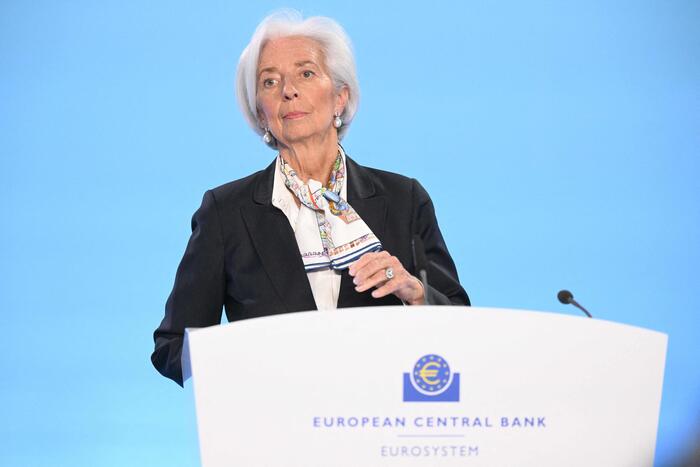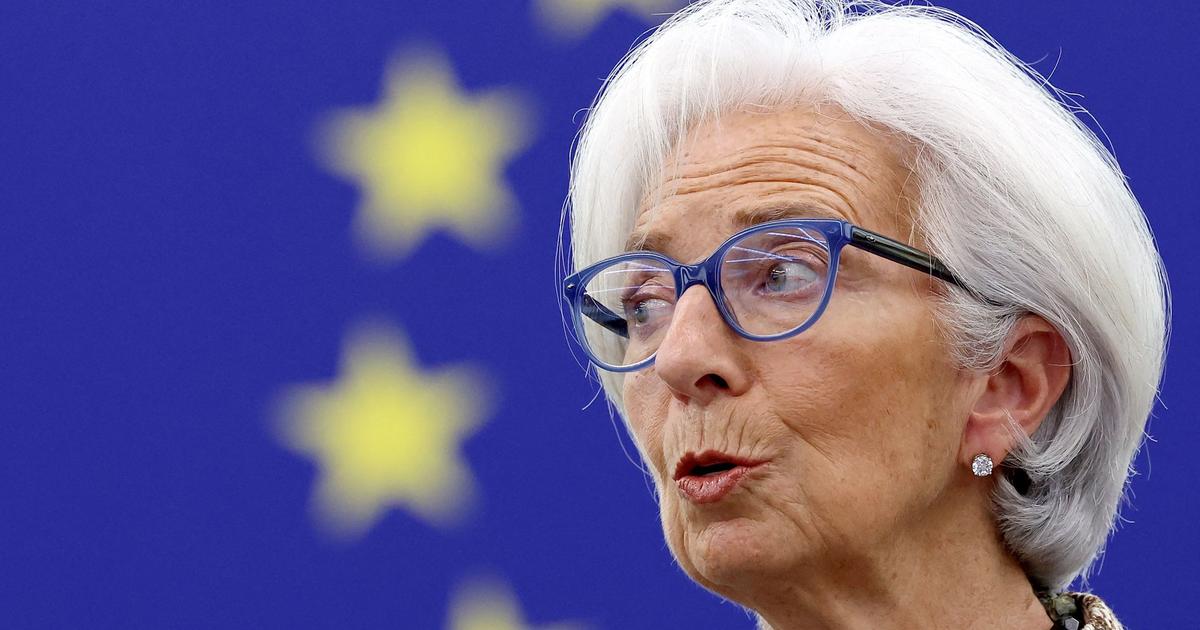The inflation rises and rises - but Europe's monetary authorities are steadfast.
There is no end in sight to the flood of money.
The course is not without controversy.
Frankfurt / Main - Europe's monetary authorities are sticking to their cheap money course despite rising inflation rates.
Only in December does the Council of the European Central Bank (ECB) want to decide how to proceed with the billion-dollar bond purchases.
ECB President Christine Lagarde had already announced this.
An end to the low interest rates in the euro zone is still not in sight.
At its meeting on Thursday, the Governing Council left the key interest rate for the currency area of the 19 countries at the record low of zero percent.
The interest rate has been at this level since March 2016. Commercial banks still have to pay 0.5 percent interest when they park money at the central bank in Frankfurt.
When it comes to buying bonds, the ECB is putting a little on the brakes in the current quarter.
But the PEPP (Pandemic Emergency Purchase Program) purchase program launched to cushion the corona shock should run until at least the end of March 2022.
In this context, the ECB has estimated 1.85 trillion euros for the acquisition of government and corporate papers.
Critics accuse the ECB of using all the cheap money to fuel inflation, which it actually wants to keep in check.
A higher rate of inflation weakens the purchasing power of consumers because they can then buy less for one euro than before.
For months, inflation in Germany as well as in the euro area as a whole has only been heading in one direction: up.
In September, the rate of inflation in the currency area climbed to 3.4 percent.
That is the highest level in 13 years.
The ECB is aiming for an annual rate of two percent for the euro area in the medium term.
"We know that a sustained expansionary monetary policy has negative side effects that increase over time," warned the head of the Belgian central bank, Pierre Wunsch, recently.
"I advocate a gradual exit from the current mode," said Wunsch, who co-decides on monetary policy in the Governing Council, the "Wirtschaftswoche".
Leading ECB officials explain the rise in consumer prices with special factors such as the recovery in oil prices after the corona shock last year.
The return to the usual VAT rates in Europe's largest economy, Germany, on January 1, 2021, will also have an effect on inflation in the euro area.
Lagarde had emphasized at the end of September that the economy in the euro area still needs the support of monetary policy after the corona shock: "The economy has bottomed out, but is not quite over the hill." The pandemic also explains the comparatively strong increase in inflation rates recently.
It was mainly about "a period of temporary inflation in connection with the reopening," said Lagarde.
also read
Hugo Boss raises forecast: quarter better than expected
After a successful quarter, the fashion group Hugo Boss is more optimistic about the year as a whole.
In 2021, currency-adjusted sales are likely to be 40 percent higher than in the previous year, the company announced on Thursday evening.
Hugo Boss had previously assumed an increase of 30 to 35 percent.
Earnings before interest and taxes (EBIT) should now be between 175 and 200 million euros (previously:
Hugo Boss raises forecast: quarter better than expected
Departing AfD boss Meuthen: "I was never a fig leaf"
AfD leader Meuthen leaves the party leadership without much ado.
He says he cannot see a “permanent shift to the right” by the AfD.
What bothers him is the opportunism of some AfD officials.
Departing AfD boss Meuthen: "I was never a fig leaf"
Dax due to inflation concerns with quarterly loss
Investors on the German stock market remained nervous on Thursday.
The Dax went 0.68 percent lower at 15,260.69 meters from trading.
The MDax with the medium-sized values lost 0.44 percent to 34,369.69 points.
Dax due to inflation concerns with quarterly loss
One of the critics of the ultra-loose monetary policy will be absent from the Governing Council in the future: Jens Weidmann will be giving up his post as Bundesbank President after a good ten years on December 31, 2021, and will therefore also be stepping down from the highest decision-making body of the ECB.
It has not yet been decided who will lead the Deutsche Bundesbank in the future.
dpa






/cloudfront-eu-central-1.images.arcpublishing.com/prisa/C3LDLHDAXBBCFCHWBPELHN64FU.jpg)

/cloudfront-eu-central-1.images.arcpublishing.com/prisa/YS736RHYZRGIRRV66X7MYCGVBU.jpg)




/cloudfront-eu-central-1.images.arcpublishing.com/prisa/KMEYMJKESBAZBE4MRBAM4TGHIQ.jpg)

